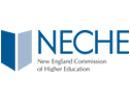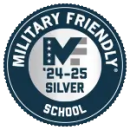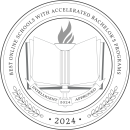Complete MATH-210
Explore Software Development
Software development is an in-demand and high-paying field, and is an ideal career path for driven individuals with technical aptitude. Champlain's online software development degree program is designed to build upon your existing technical skillset through software engineering courses and provide you with a solid foundation of knowledge to confidently move forward in the world of software development.
Finish your program faster with credit for prior learning and experience.
Differentiate your degree and get your resume noticed with a certificate. Speak with your advisor for information.
Build Your Career Future
This software developer degree program emphasizes hands-on learning, putting theory into practice working with cutting-edge technologies. You'll gain critical technical skills (including knowledge of 8+ key applications, platforms, and programming languages, listed below) valuable in software design, web development, computer programming, and artificial intelligence in addition to valuable skills such as communication and leadership.
This software development degree online program is ideal for those looking to enter the software development or software engineering field, or for those who have found themselves in a related computer science role and are looking for formal computer systems training and knowledge. Plus, the software development associate degree offers a solid stepping stone toward a full bachelor's degree in software development for those who are returning to school after time away, or embarking on their first degree.
Program Curriculum
Learn more about Champlain's 100% online software development associate degree, designed for working professionals.
Champlain's online software development courses encompass the top skills needed by today's software professionals. Graduates of the program are required to complete the following courses.
Professional Courses (36 credits)
General Education Courses (21 credits)
General Electives (3 credits)
Note: Some of the courses in this program are available in 15-week terms only. Please contact your advisor for details and information on how this may impact your time to completion.
This course provides students with an understanding of the many different devices and technologies, from historical to emerging, that are required to design and build networks. In a broad survey of concepts and terminology, students will learn about topology, communications, protocols, and security, and to diagram basic networks to specification.
From day one, students in this course are problem solving, first in terms of algorithmic design and then as early as week two via programming in the latest version of Python, using PyCharm. Students begin by writing a program to have a conversation, having strings and numbers as input, and advance, by week seven, to building a working password saver program, capable of looking up, adding (and encrypting), and storing passwords.
Learn the basics and more in this course on Relational Database Management Systems (RDBMS) and SQL (Structured Query Language). Students propose a final project in the first module and then work, week-by-week, to design, create, and populate the database. Then, students learn to create queries and stored procedures.
Students will explore foundational concepts of calculus as they investigate limits, derivatives, and integrals, applying the product, quotient, and chain rules for differentiation and integration to algebraic, exponential, logarithmic, and trigonometric functions. Through problem-solving and real-world applications, students will analyze and optimize functions, sketch curves, and compute areas under graphs for both definite and indefinite integrals, and integrate by substitution and by parts.
This course introduces foundational concepts in discrete mathematics. Students will explore set theory, logic, and Boolean algebra, apply proof techniques like induction, and solve combinatorics problems using permutations and combinations. The course emphasizes graph theory, including trees, Euler and Hamilton paths, and algorithms, and examines functions and growth measures such as Big-O notation to develop critical problem-solving skills.
Prerequisites
This course covers the fundamentals of systems analysis while emphasizing the role of communication and other soft skills needed in IT and in business overall to be successful. The topics are useful for anyone who is involved in developing software system requirements and architectures (e.g., users, technical managers, product managers, technical leads, programmers, other software project team members, and clients).
Prerequisites
CMIT-135, CMIT-200, MGMT-260
This course will introduce students to programming concepts, using a major industry programming language, C++. SDEV-240 covers the history of programming languages, the essentials of the C++ programming language, and how to write effective and efficient programs to solve a variety of real-world problems.
Prerequisites
CMIT-135
The focus of this course is to cover the robust and powerful features of C++ and Object Oriented Programming. These skills will serve as a foundation to transit to develop Client/Server, Database driven applications and simulations.
Prerequisites
SDEV-240
In this course, students will learn about correct, efficient data structures and algorithms, and how to design, analyze, and implement them in software applications. Various abstract data types including linked lists, stacks, queues, and trees will be covered in detail. Algorithms for searching, sorting, and implementing data structures will be examined using diagrams, animations, pseudocode, and C++ code.
Prerequisites
SDEV-340, MATH270
From storyboard to form creation, students walk through the steps to create a basic four to five-page website to specification in this course that introduces HTML5 and CSS. Hands-on assignments reinforce skills development and best practices in design: navigation, column layout, image editing and usage, fonts and tables.
Websites have three functions - to facilitate, enable and persuade - and are only useful if they can connect people and achieve definite goals. In this course, students learn to understand the concept of usability, and the roles of interaction, users, communication and collaboration as well as how to evaluate usability, and observe and test users.
Prerequisites
WEBD-215 OR SDEV-230
Project Management is the formal application of knowledge, skills, tools, and techniques to project-based activities to meet organizational requirements. Project management is accomplished through the use of processes such as Initiating, Planning, Executing, Monitoring and Controlling, and Closing. Project managers can divide projects into these phases to provide better management control with appropriate links to the ongoing operations of the organization. Collectively, these phases, known as the project life cycle, form the foundation for the practice of project management and are guided by the Body of Knowledge from the Project Management Institute (PMI).
This course introduces students to the foundational concepts needed to communicate effectively in writing for academic study and professional development. Students will also learn to read critically to evaluate an author's message. Students will be introduced to rhetorical modes and their role in the development of written communication. Students will also learn how to use revision strategies to create written communication that meets its intended purpose for its intended audience
This course builds on students' proficiency in the writing process and rhetorical modes to introduce the use of sources in written communication. Students will practice information literacy as they learn to determine information needs from sources, develop effective search strategies, and incorporate sources in written communication, legally and ethically.
Prerequisites
Complete ENGL-100
Starting with a frame of human communication as a dynamic system of interactions in which people make choices that impact their relationships, other people, and themselves, students will define theory-informed communication concepts and processes, and critically examine how they apply to everyday life across a variety of contexts. Students will reflect on how the theory, concepts and processes apply to their own lives in becoming competent communicators who are knowledgeable, skilled, and versatile.
Students will learn and apply critical inquiry skills to analyze persuasive communication created by others and to develop persuasive communication/arguments of their own to solve problems in professional, civic, social, and personal contexts. Specifically, students will learn to recognize fallacies in logic; apply inductive and deductive reasoning strategies to the interpretation and development of persuasive communication; evaluate the validity of sources; and develop logically sound persuasive communication. Students will explore the roles of self-awareness, empathy, and ethics in the context of critical inquiry and the development of arguments.
Prerequisites
Complete ENGL-110.
Mathematical reasoning, when applied to everyday and professional lives, has two dimensions: logic for deterministic situations and probabilities for non-deterministic situations. This course aims to help students develop these mathematical reasoning skills.
This course introduces students to basic statistics for data literacy. With a focus on exploring real-world data, students will interpret numerical information and utilize the tools necessary to complete the entire statistical process: designing a study; gathering, organizing, and analyzing sample data; and making inferences about a population. Students will demonstrate data-driven decision-making and effective communication of numerical data.
Introduces students to the biochemistry and physiology of nutrition and exercise. Emphasis will be placed on human body systems such as musculoskeletal, digestive, respiratory and circulatory, and their relationship to nutrition and fitness. Students will also study the biochemistry of energy conversion as it relates to exercise physiology. Laboratory sessions are designed to reinforce, by a hands-on approach, the principles discussed in lecture. Course includes two laboratory hours per week.
Students will develop the ability to apply scientific methods to understand the natural world, to identify scientific aspects of daily life, and to evaluate the quality of scientific information based on its source and the methods used for its generation.
In this course, students will gain an introduction to classical mechanics and learn about motion, force, energy, and momentum. The course covers vectors, scalars, and coordinate systems, as well as kinematics in one and two dimensions, Newton's Laws of Motion, circular motion, and kinetic energy and work. Students also learn about potential energy and energy conservation, collision theory, rotational motion, moment of inertia, torque, rotational dynamics, and angular momentum.
With pressure and release, a window opens and closes, recording light on a sensor. The simple action captures the instinct, judgement, and skill of the person behind the lens. This class will begin a study of the art and craft of photography. Students will develop their vision and their understanding of how to achieve it. Solid skills will be learned and many doors will be opened.
A survey of the continuing change experienced in art since the 15th century. Students will examine how an image is achieved as well as the significance of the subject represented. Individual inquiry concerning the nature of art is encouraged.
Students learn to appreciate films through the critical analysis of various elements of mise-en-scene, cinematography, editing and sound. The course introduces the conventions of classical Hollywood cinema, considers the work of one major director (auteur), and surveys selected international and independent films. Students view and discuss films each week.
Students in the course will explore the cultural history of the music genre broadly referred to as rock. Students will explore the social, economic and political contexts that are influenced by and that influenced each style in the United States. By listening, watching, reflecting upon, discussing and writing, students will explore how music takes on meaning, personally, and culturally. Topics and themes include the relationships between and among gospel, country, funk, folk, disco, rap and hip hop; the role of business and technology in those relationships, and political or transgressive elements of rock music.
This course introduces students to the fundamentals of substantive criminal law. With this foundation for understanding the legal system students will identify the essential elements of crimes, including the criminal act, criminal state of mind, and jurisdiction. They will examine the rationale underlying criminal law, factors affecting criminal responsibility, and legal defenses. By analyzing real-world scenarios, students will develop skills to distinguish lawful from unlawful actions and prepare for advanced studies or careers in criminal justice.
This course focuses on the rules and procedures governing how the American criminal justice system must process individuals suspected, accused, and convicted of law violations.
In this course, students will explore the theory and fundamentals of criminal investigation, emphasizing practical applications for evidence handling and case development. Students will review basic responsibilities of investigators and protocols for report writing, evidence collection, and preparation of cases for trial. The curriculum examines investigative approaches for various crime categories, including violent offenses, property crimes, terrorism, and hate crimes, while introducing comparative perspectives from diverse legal systems.
Prerequisites
Take CRIM-120.
Principles of Economics introduces the fundamental concepts of economics - the study of how people manage resources, and how they react to scarcity. This course focuses on both microeconomics (the behavior of consumers and companies) and macroeconomics (large-scale economic factors such as employment and interest rates), so that you'll gain a broad understanding of how a modern market economy functions, how decisions in business settings are informed by economics, and how economics applies to your everyday life.
Students will study important themes in the social history of the United States since the Civil War. This course allows students to expand their critical thinking skills through an examination of primary and secondary sources. Themes might include: the evolving status of women; the immigrant experience; the concept of the American dream; the paradox of freedom vs. slavery; the minority experience; the tensions between social classes. Students will be evaluated primarily on writing assignments.
Students will learn how to create conditions for successful conflict engagement, a necessary skill for any professional. The course focuses on the foundational capacities to remain calm and connected with oneself and others. In this state students can access helpful ideas and responses and be their best selves regardless of environment. Improving facility for conflict creates stronger relationships and reduces fear. By the end of the course, students will understand that disagreement and difference can become a source of personal and interpersonal growth.
In this course, students will explore broad, foundational knowledge in psychology, including its history, major theorists and a survey of psychology subfields such as developmental, cognitive and social psychology. Students will also describe and assess the role of ethics and social responsibility in the study and application of psychological theory and practices.
In this class, students will explore how social relationships, groups, societies and culture develop and change over time. From a sociological theory foundation and employing the sociological imagination, students will examine the impact of social structures, institutions, and systems on individual lives. Students will apply sociological research methods to investigate sociological phenomena in their own lives.
This course explores the complex and evolving relationship between human beings and technology. Through a multi-disciplinary approach that draws on fields such as sociology, psychology, philosophy, and history, students will examine the ways in which technology has shaped human culture, identity, and values, as well as how humans have influenced and continue to influence the development, adoption and use of technology.
Additional Program Details
Graduates of the software development associate online program will demonstrate the following industry-specific skills, knowledge, and competencies:
- Apply fundamental computer theory to software development practices.
- Manipulate data efficiently to make optimal use of computing resources.
- Apply principles of human-computer interaction, especially user experience (UX), in the design and usability of computer interfaces.
- Identify and analyze user needs and take them into account when selecting, creating, and evaluating computer-based systems.
- Effectively use project management tools and techniques to complete tasks on time and on budget.
- Acquire in-demand technical, analytical and soft skills employers want - such as communication, creativity, critical thinking, and collaboration - in general education courses that are a part of this degree.
Starting Fall 2025, the learning outcomes for this program will be as follows:
- Utilize foundational programming concepts and algorithms to design and implement efficient software solutions.
- Analyze user needs to design and evaluate effective computer-based systems.
- Develop and manage databases to organize and optimize data storage and retrieval.
- Design user-friendly interfaces by applying global principles of human-computer interaction, accessibility and usability.
- Apply project management tools and techniques to effectively plan and deliver projects on schedule and within budget.
Design your own degree and enhance its value and focus by adding a certificate. Adding a certificate allows you to develop specialized skills, strengthen your résumé, and tailor your education to align with career goals. Choose from the undergraduate certificates on this page.
Note: To earn a certificate, you must speak with your advisor first. You must be officially enrolled in the certificate program before you complete the required courses in it — coursework completed prior to enrollment cannot be applied later, and certificates may not be added retroactively. Careful planning with an advisor is essential to ensure all policies and timelines are met.
- C++
- CSS
- HTML5
- Object Oriented Programming
- PyCharm
- Python
- Relational Database Management Systems (RDBMS)
- SQL (Structured Query Language)
Our admissions team seeks to admit students who:
- Demonstrate a solid academic foundation - a minimum 2.5 GPA is our recommendation, though exceptions may be made on a case-by-case basis for those who demonstrate a potential for academic success in other ways.
- Possess an aptitude for success in an online learning environment.
- Exhibit the ability to make a positive contribution to the Champlain College Online community.
To learn more about submitting transcripts, or requirements for home-schooled students, those educated abroad or returning students visit our Undergraduate Admissions page.
Our transfer credit evaluation team works hard to ensure you get the transfer credits you deserve, from a variety of sources including prior college credits, work experience and training, military training and experience, and more. Our goal is to help you graduate from Champlain College Online as quickly and affordably as possible. Visit our Transfer Credit Options page to learn more.
Champlain College Online's software development faculty, led by Program Director Richard Pickering, are expert practitioners in the field. Their industry expertise ensures that our software development curriculum is aligned with the needs of employers, and reflects the skills today’s software development professionals need for success. Classes led by our seasoned experts will give you real-world insight into the field, and create a rich community of career-focused learning.
Tuition & Costs
Online Undergraduate Tuition Fall '25 - Summer '26
Tuition & Costs
Online Undergraduate Tuition Fall '26 - Summer '27
* Alumni is defined, for this tuition rate, as any degree program graduate from Champlain College or Champlain College Online.
** Veteran rate effective Spring 2025, not retroactive
See the undergraduate cost of attendance and fees here
Affordability and Paying For Your Education
We provide a number of options to make your online education affordable, including preferred tuition for alumni, associate degree graduates, community college graduates, and military.
Move Your Software Development Career Forward
Software development occupations are projected to grow 22% between 2020 and 2030, much faster than the average for all occupations. The median annual salary for this in-demand field is over $110,140.*
Graduates of Champlain's online software development associate degree program will be prepared to work in a variety of industries, including computer systems design, manufacturing, finance and insurance, software publishing, and engineering.
*Source: Bureau of Labor Statistics (BLS), 2020; job titles: computerscience.org, 2020
Top Jobs for Associate in Software Development Graduates
- Computer and Information System Manager
- Computer Programmer
- Computer Support Specialist
- Computer System Analyst
- Information Security Analyst

Why Champlain
Affordability
"I was able to transfer in 86 credits towards my bachelor's degree, and then complete the rest of my program at Champlain. In all, it took me four semesters to go from high school graduate to college graduate, and now I've been accepted to the MBA program."

Academic Excellence and Recognition

Regionally accredited by the New England Commission of Higher Education

Designated as a Military Friendly School for our commitment to the military community
Ranked among the best by Tech Guide for game design and computer science

Named the among the best schools with accelerated bachelor's degrees by Intelligent.com
Meet the Program Director
Daniel Selicaro, MS
- Computer Science (BS)
- Software Development (AS, BS)
- Web Design & Development (AS, BS)
- Software Engineering and Project Management (MS)
About
Daniel Selicaro is an Assistant Professor and Program Director for Technology at Champlain College Online. He oversees bachelor degree programs for Software Development, Web Design and Development, and Computer Science, as well as the graduate program in Software Engineering and Project Management.
Dan has been at Champlain College since 2007, and has been teaching web design and development for Champlain since 2015. He began his career in print journalism as a newspaper reporter, and was the news editor for Upside magazine and the Red Herring magazine in California. After moving back to the East Coast, he worked on digital marketing at Champlain College, and was an active part of two redevelopments of the College website, champlain.edu, before he took a role in the Information Systems department.
Outside of Champlain, Dan runs his own website development company, and is on the board of directors for several local organizations — including as marketing chair at the Fellowship of the Wheel mountain biking club, the Green Mountain Montessori School, and the Essex United Soccer Club. He is an avid mountain biker, and loves to spend his time adventuring in Vermont with his two young children.

Frequently Asked Questions
Following are some frequently asked questions about our associate degree in software development.
The program can be completed in as little as seven terms, with each term lasting seven weeks.
You’ll acquire critical technical skills, including knowledge of 8+ key applications, platforms, and programming languages. Additionally, you’ll develop valuable soft skills like communication and leadership.
Yes, the program is fully online, allowing you to learn at your own convenience and schedule.
Graduates can pursue roles such as software developers, software engineers, computer system analysts, computer programmers, and computer support specialists.
Yes, as a student, you’ll have access to the Fast Start Formula Career Bundle, which provides guidance for getting noticed and hired in the software development industry.
Champlain College Online offers various options to make education affordable, including financial aid and truED preferred pricing to save on tuition costs. Additionally, the associate software development degree program provides transparency regarding tuition and fees, ensuring students can make informed decisions about their education.
You May Also Be Interested In
Get Your Software Development Program Guide
Learn what you can expect from our associate in software development program.

Download Program Guide
I acknowledge that, by clicking the "submit" button, I am giving my express written consent to Champlain College and its representatives to contact me about educational opportunities via email, text, or phone, at the phone number above, including my mobile phone, using an automatic dialer, or pre-recorded message. Message and data rates may apply. I understand that my consent is not a requirement for enrollment, and I may withdraw my consent at any time.






